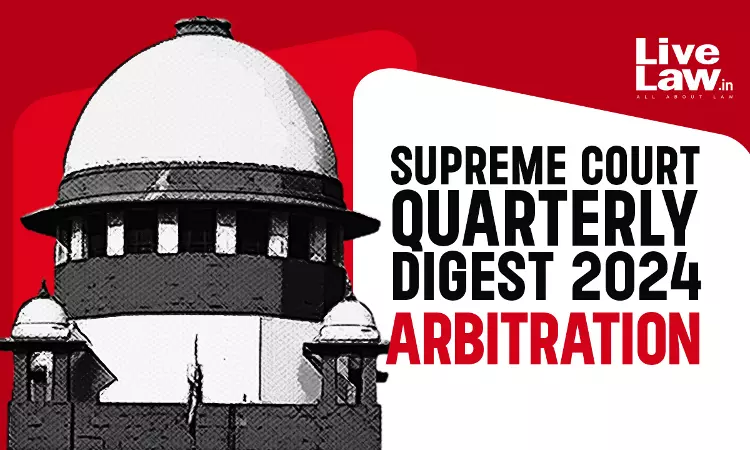Supreme Court Quarterly Digest 2024- ARBITRATION (Jan - Mar)
LIVELAW NEWS NETWORK
21 May 2024 5:27 PM IST

Next Story
21 May 2024 5:27 PM IST
SUPREME COURT QUARTERLY DIGEST 2024Arbitration and Conciliation Act, 1996An award could be said to be against the public policy of India in, inter alia, the following circumstances: 1. When an award is, on its face, in patent violation of a statutory provision 2. When the arbitrator/Arbitral Tribunal has failed to adopt a judicial approach in deciding the dispute. 3. When an award is in...
